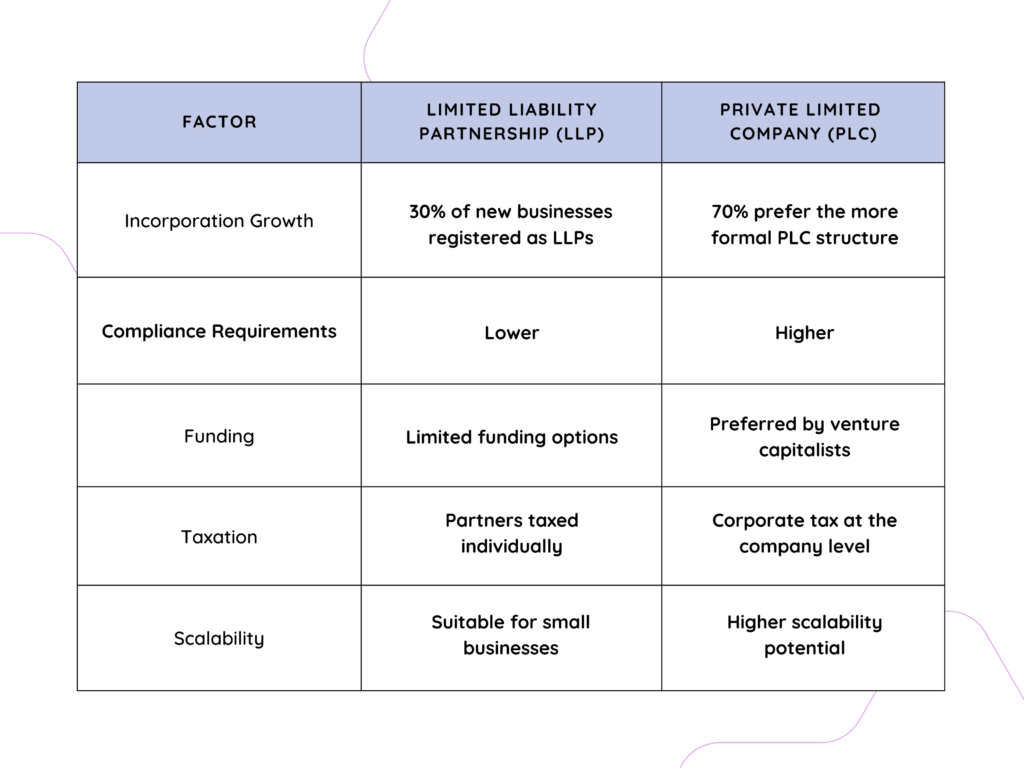Nearly 45% of startups in India choose either a Limited Liability Partnership (LLP) or a Private Limited Company (PLC) as their legal structure. The choice between these two structures can significantly impact your business’s growth, compliance requirements, and investment opportunities.
Selecting the right legal framework is crucial for the future success of your startup. In this blog, we break down the differences between LLP and PLC, using factual data and key insights to guide you in making the best decision for your business.
LLP vs. Private Limited Company: A Comparison

Key Statistics to Consider
- Investor Preferences: According to a report by Indian Angel Network, over 85% of investors favor startups registered as Private Limited Companies due to better governance and transparency.
- Growth Potential: Startups that register as PLCs have a 30% higher chance of securing Series A funding compared to LLPs.
- Compliance Burden: While LLPs are seen as a cost-saving option, data from the Ministry of Corporate Affairs suggests that startups registered as Private Limited Companies experience 20% more regulatory scrutiny but are perceived as more credible by financial institutions.
Which Legal Structure is Best for Your Startup?
- LLP: Ideal for startups seeking flexibility and lower compliance costs. It suits businesses that don’t anticipate immediate external funding.
- Private Limited Company: A better fit for startups focused on scalability and fundraising. With a distinct legal identity and structured governance, it offers credibility and ease of attracting investors.
How Coinshell Can Help
Choosing between LLP and Private Limited Company can be overwhelming, but you don’t have to navigate it alone. At Coinshell, we specialize in company formation services, ensuring that your startup picks the legal structure that best aligns with your goals. Our team of experts will handle all the paperwork, compliance filings, and registrations, so you can focus on growing your business.
Let Coinshell be your partner in building a solid legal foundation for your startup, ensuring compliance and positioning your company for future success.


